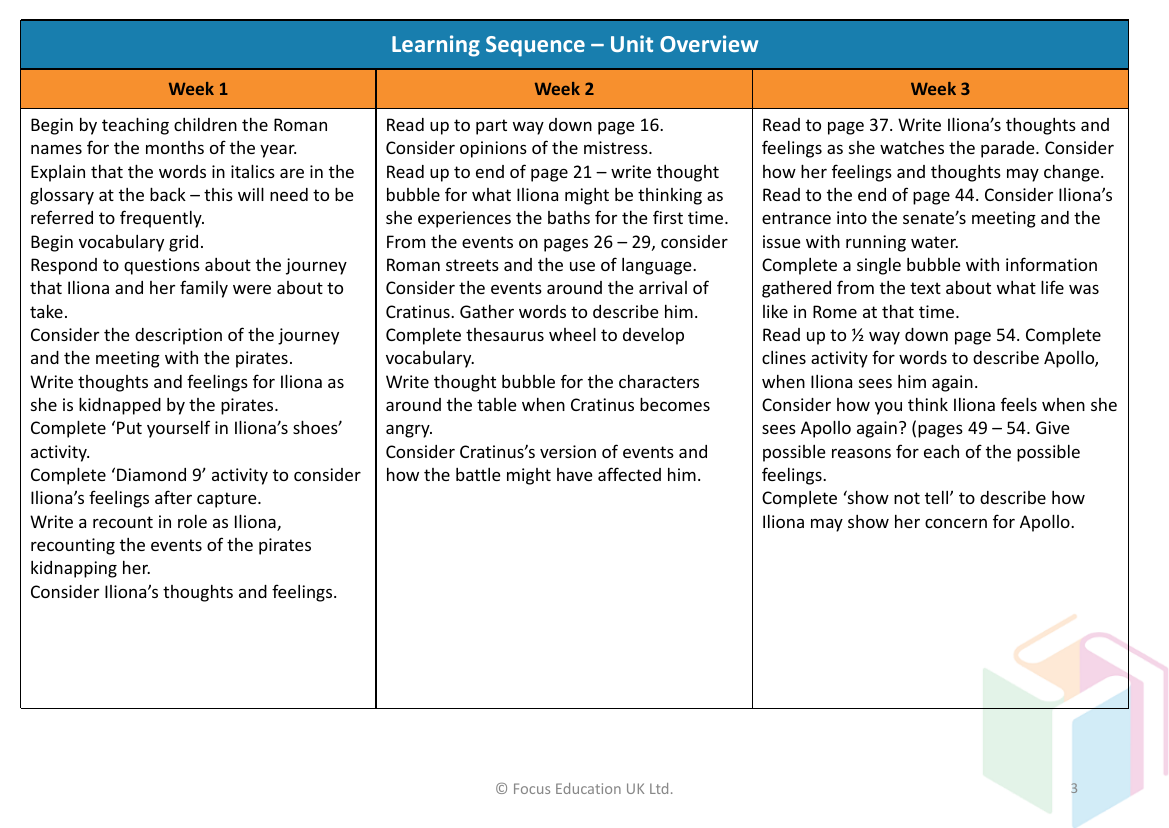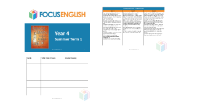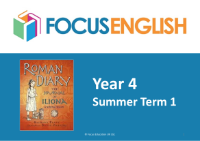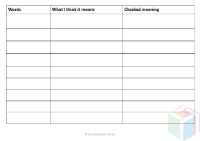Roman Diary The Journal Of Iliona - Learning Sequence

English Resource Description
The learning sequence for 'Roman Diary: The Journal of Iliona' is a meticulously planned unit that spans six weeks, designed to immerse children in the life and times of ancient Rome through the eyes of the young protagonist, Iliona. In the first week, the children are introduced to Roman names for the months and are encouraged to use a glossary to understand italicized words, beginning with a vocabulary grid. As they delve into the story, they engage with Iliona's journey, her encounter with pirates, and her subsequent kidnapping. Through various activities like 'Put yourself in Iliona's shoes' and 'Diamond 9', students explore Iliona's emotions and write recounts from her perspective. They read up to page 16, considering the mistress's character, and up to page 21, where Iliona experiences Roman baths, capturing her thoughts in a thought bubble exercise.
Moving into the subsequent weeks, the children continue to read the diary, with activities that help them to analyze characters and settings in depth. They consider Iliona's thoughts during a parade and her reactions to the senate's meeting, using text-based evidence to understand life in Rome. The 'clines' activity aids in expanding their vocabulary to describe the character Apollo, and they are encouraged to express Iliona's feelings through 'show not tell' techniques. In weeks four to six, the narrative progresses through events like a fire, a visit to the country, and a gladiator fight. Students write diary entries, analyze quotes, and respond to Iliona's experiences, such as her theatre visit and the death of her master. They consider her character traits and her eventual freedom, using activities like 'role on the wall' and evidence grids. The unit culminates with the students sequencing the diary's main events, creating emotion graphs, and writing narratives in the third person, ensuring a comprehensive understanding of the text and its historical context.


